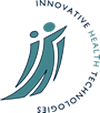Quality Of Life As An Innovative Health Technology
Abstract
This project examines the role of quality of life measurement instruments in providing a 'social' interface with traditional innovative health technologies (IHTs). Increasingly IHTs can only be implemented and disseminated if they have passed the 'Does it improve the quality of life?' test. This means that the structure and content of quality of life measures play an important role in defining successful IHTs. By mapping the growth of quality of life measures and their penetration into IHTs it will therefore be possible to identify the changing nature of one of the main determinants of successful IHTs. Analysis of the development and spread of quality of life measures will also reveal how social values get encoded into contemporary instruments and, in consequence, show how the use of such measures functions as an important mechanism through which society engages with IHTs.
Summary
Background
Quality of life (QoL) measures represent an important interface between traditional biomedical technologies such as drug treatments, surgical procedures and diagnostic imaging and society. First, the structure and content of QoL measures encode contemporary ideas about what it is to have a good life. Then these formalised instruments are used to assess the value of innovative health technologies (IHTs). Indeed, increasingly IHTs can only be implemented and disseminated if they have passed the 'Does it improve the quality of life?' test. Studying the development and spread of QoL measures from their beginnings 30 years ago to their proliferation today can, on the one hand, provide a way of mapping changes in social values and, on the other hand, exploring the way in which traditional biomedical markers of 'success' have been replaced by socially derived ones.
Research Design
The project will use both quantitative and qualitative analysis of published
evaluative studies that have used QoL measures (and related instruments
such as subjective health measures). Medical databases provide a readily
accessible and comprehensive coverage of published medical research over
the last three or four decades (which encompasses the period during which
QoL has been used in technology evaluation).
The data base will be used to classify studies that use QoL measures. The
classification will include year of publication, the diseases/medical problems
addressed, the type of technology being evaluated, the country in which
the research was carried out, citation impact scores, etc. This will enable
the spread of QoL measures to be mapped. Further, through study of accompanying
articles and editorials that promote QoL measurement the history of the
struggle to achieve legitimacy for this new way of evaluating success can
be better understood.
Copies of QoL instruments used in these studies will be subjected to an
analysis to identify the underlying structure of the instruments together
with their content items. Changes in these features of QoL measure design
will provide an overview of changing ways in which quality of life has been
realised over the last three decades as well as enabling these to be related
to their deployment in the field of biomedical technology assessment.
Policy and Academic Implications
This project will help in understanding the development and success of various IHTs in particular the important role that QoL measures play in managing the interface between instrumental technologies and the social domain. The research should also help throw light on the future design and deployment of QoL measures themselves.
Contacts
Outputs
Research Findings
Findings are available here - pdf
News
May 2002
David Armstrong has been appointed to chair the Cancer Trials Awards and Advisory Committee (CTAAC) which runs under the aegis of MRC, Cancer Research UK and the National Cancer Research Institute.
He has also taken on the role of Chair of a new Methodology Panel of the
NHS R&D programme

